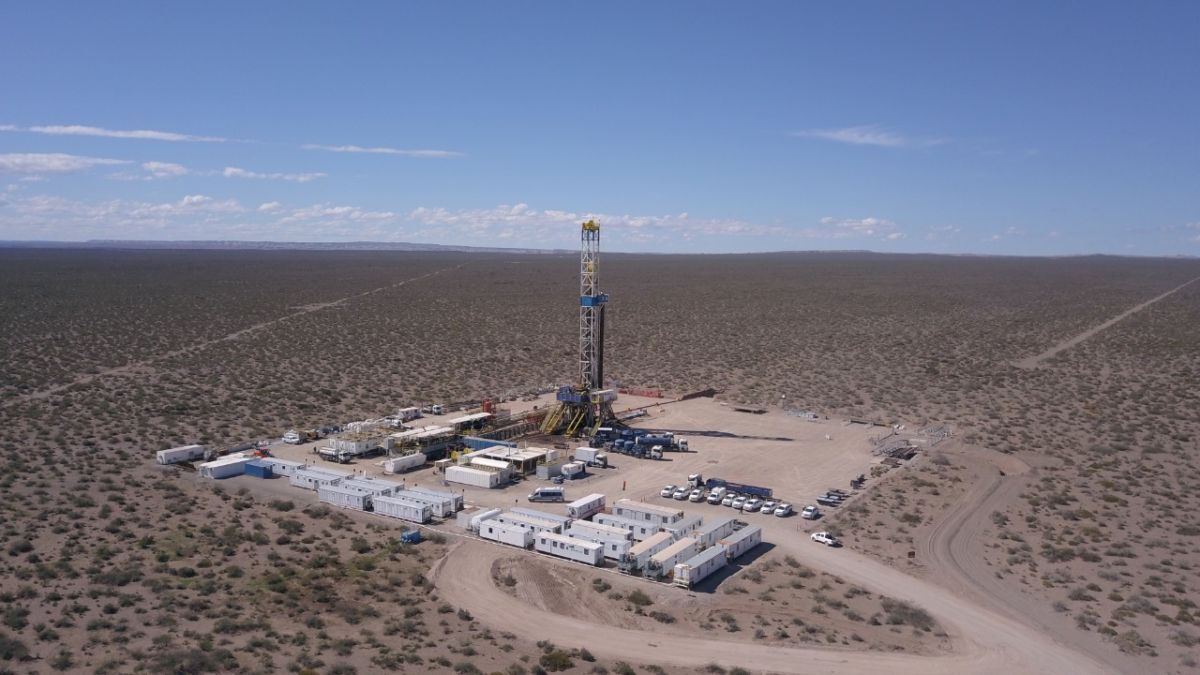Despite the climate of total uncertainty that reigns in the business community in the midst of the electoral process, in the energy sector there is “optimism”. This was reflected in the definitions of seven CEOs of the most important oil & gas companies in the country during the Argentina Oil&Gas 2023 Exhibition held in La Rural, and in which he participated Ambit.
However, they ask that for growth to accelerate, it is necessary predictability, a new regulatory framework and access to foreign currency, so that the “window of opportunity” for hydrocarbons does not pass with the transition. The business community demands that Argentina aspire to be “Norway and not Nigeria” and thus be able to export US$20 billion per year in energy alone.
“This is an island,” could be heard in the long line that existed to enter the auditorium where the activity called “Meeting with the CEOS” would take place.
“I am optimistic, but there is a lot of work to do,” stated from the stage Ricardo Rodriguez, CEO of Argentina for Shell. When asked by Ernesto López Anadón, president of the Argentine Oil and Gas Institute (IAPG), he revealed how he fights at his headquarters so that investments come to Argentina and not to Brazil or the Gulf of Mexico.
“Argentina has things that make it very competitive: we are privileged in the rock that is in Vaca Muerta and in the human capital. We are the first private oil producer in Vaca Muerta, with 45,000 barrels per day, and we are going to end at 55,000”, Rodriguez stated. “But there are three things that decrease profitability: access to foreign currency because we need to pay suppliers to bring technology and repatriate dividends to shareholders; The other is prices, there is no free market, Brent does not govern here. And finally that there are clear rules,” he added. The CEO of Shell said that they invest US$500 million a year: “I would like it to be more, but we need other conditions,” he stated.
In the same line, Catherine Remy, general director of Total Austral, told how she fights to make Argentina relevant in the portfolio of the multinational, based in France: “Access to foreign currency is especially looked at. We know how complex the situation currently is and the efforts being made, but it is complicated for an international company.” About Fénix, the great project that Total has for offshore in Tierra del Fuego, Remy revealed that he hopes they will be producing in November 2024, with the first export for next March.
The great opportunity that Remy revealed is gas reserves: “Argentina has a lot of gas, which has half the emissions of coal, so everyone is aligned that it is the energy of the transition. There’s a perfect match“I am very optimistic, but there is a lot to do.”
For its part, Pablo Iuliano, CEO of YPF, recalled that this month marks 10 years of the Loma Campana deposit in Vaca Muerta: “It was the founding stone. Since then The entire industry invested US$39,000 million to today be producing 300,000 barrels. “If we did not develop Vaca Muerta, today we would be importing US$16 billion of oil and gas.” Yes ok He was confident that 1 million barrels per day could be produced by 2026assured that he has to continue improving technology, productivity and efficiency.
“This industry can change the face of our country and it exports US$20 billion per year,” he added. However, he assured that the challenge going forward is to align the entire public and private sector so that “Vaca Muerta is an export platform,” and said that the great opportunity to reach the world will be to be able to develop LNG, which will involve investments for US$50,000 million. “The need to do it is imposed on us, and quickly,” he added.
In the same line, Javier Martínez Álvarez, president of the Southern Cone of Tenaris, stated: “This moment is crucial, but an ordering of the rules of the game of the macroeconomy is needed, which allows the private sector to do what they know.” On the other hand, he revealed that two models can be established: “In the world there is the Norway or Nigeria model, both countries have resources, but they do something very different. “Argentina has a reasonable degree of integration, but it needs greater integration in value chains, as Norway did.”
Infrastructure need
Álvarez revealed that this year Tenaris will export for US$1 billion, with steel tubes that are sold to the world for US$2000 per ton. Having received the award to continue the Néstor Kirchner gas pipeline to the north of Argentina, he assured that they will have to “run”, due to the risk of lack of supply from Bolivia for next winter.
Also on stage were three CEOs from the infrastructure sector linked to energy: Carlos MundinBTU, Daniel Flaksfrom SACDE, and Gustavo Gallino, general director of Techint Engineering and Construction. The three agreed that the construction of the Néstor Kirchner gas pipeline showed that “there is capacity,” they called for greater planning and a regulatory legal framework. “We spend a lot of time doing things that do not add value, today we ask a supplier for a purchase order, a price and a deadline and you have no guarantee,” said Flaks. Gallino was confident that one million barrels could be produced, but assured: “Companies are prepared, but we need predictability to know when infrastructure projects begin and end, to be ready.”
Source: Ambito




